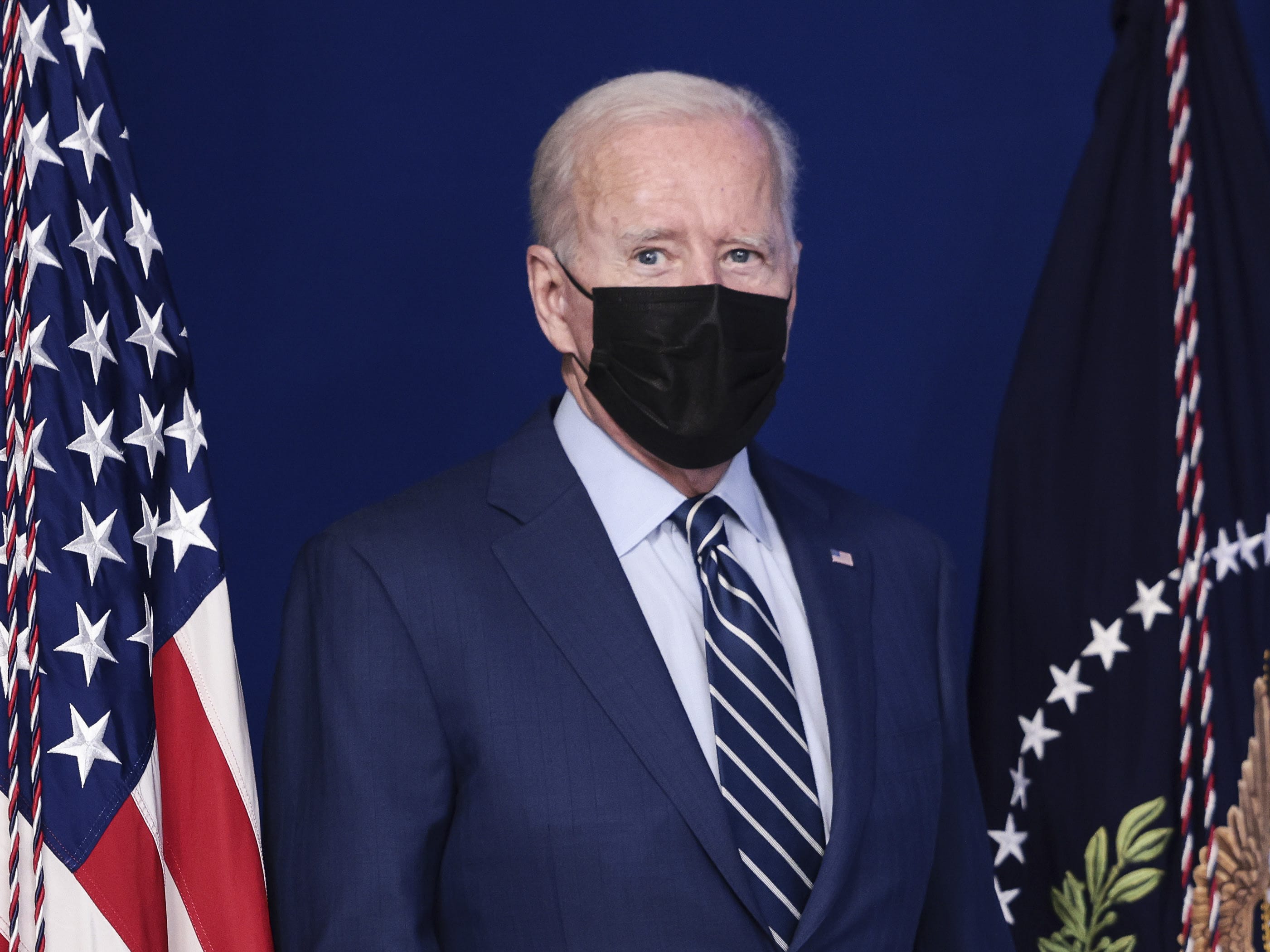Why Biden's strategy to prepare U.S. for future pandemics is 'underwhelming'


A free daily email with the biggest news stories of the day – and the best features from TheWeek.com
You are now subscribed
Your newsletter sign-up was successful
Earlier this month, the White House unveiled a new strategy aimed at preparing for future pandemics. The plan costs $65 billion over the next 10 years, and allocates a significant portion of those funds to developing technology that can quickly produce vaccines, antiviral drugs, and diagnostic tests.
It sounds like a promising start, but some experts aren't all that excited about it. "It's underwhelming," Mike Osterholm, an epidemiologist at the University of Minnesota, told The Atlantic's Ed Yong. "That $65 billion should have been a down payment, not the entire program. It's a rounding error for our federal budget, and yet our entire existence going forward depends on this."
Meanwhile, Alexandra Phelan, an expert on international law and global health policy at Georgetown University, told Yong that it's the way the funds are distributed that's concerning. "We're so focused on these high-tech solutions because they appear to be what a high-income country would do," she said.
The Week
Escape your echo chamber. Get the facts behind the news, plus analysis from multiple perspectives.

Sign up for The Week's Free Newsletters
From our morning news briefing to a weekly Good News Newsletter, get the best of The Week delivered directly to your inbox.
From our morning news briefing to a weekly Good News Newsletter, get the best of The Week delivered directly to your inbox.
Instead, Yong writes, there's a case to be made that turning America's public health sector into a much more robust operation is just as essential as gearing up to produce vaccines. That means giving communities more money to hire and train more workers and improve their workplace infrastructure; it's not enough to simply react to emergencies in the future. Finally, there likely needs to be a greater effort to address the issues that make certain communities more vulnerable to public health crises than others — that could include increased paid sick leave, safe public housing, and food assistance, Yong writes.
For what it's worth, Eric Lander, the director of the Office of Science and Technology Policy and Biden's science adviser, agrees that the $65 billion plan isn't enough. "Nobody should read that plan as the limit of what needs to be done," he told Yong. "I have no disagreement that a major effort and very substantial funding are needed." Read more at The Atlantic.
A free daily email with the biggest news stories of the day – and the best features from TheWeek.com
Tim is a staff writer at The Week and has contributed to Bedford and Bowery and The New York Transatlantic. He is a graduate of Occidental College and NYU's journalism school. Tim enjoys writing about baseball, Europe, and extinct megafauna. He lives in New York City.
-
 6 of the world’s most accessible destinations
6 of the world’s most accessible destinationsThe Week Recommends Experience all of Berlin, Singapore and Sydney
-
 How the FCC’s ‘equal time’ rule works
How the FCC’s ‘equal time’ rule worksIn the Spotlight The law is at the heart of the Colbert-CBS conflict
-
 What is the endgame in the DHS shutdown?
What is the endgame in the DHS shutdown?Today’s Big Question Democrats want to rein in ICE’s immigration crackdown
-
 Scientists are worried about amoebas
Scientists are worried about amoebasUnder the radar Small and very mighty
-
 A Nipah virus outbreak in India has brought back Covid-era surveillance
A Nipah virus outbreak in India has brought back Covid-era surveillanceUnder the radar The disease can spread through animals and humans
-
 Trump HHS slashes advised child vaccinations
Trump HHS slashes advised child vaccinationsSpeed Read In a widely condemned move, the CDC will now recommend that children get vaccinated against 11 communicable diseases, not 17
-
 Deaths of children under 5 have gone up for the first time this century
Deaths of children under 5 have gone up for the first time this centuryUnder the radar Poor funding is the culprit
-
 A fentanyl vaccine may be on the horizon
A fentanyl vaccine may be on the horizonUnder the radar Taking a serious jab at the opioid epidemic
-
 Health: Will Kennedy dismantle U.S. immunization policy?
Health: Will Kennedy dismantle U.S. immunization policy?Feature ‘America’s vaccine playbook is being rewritten by people who don’t believe in them’
-
 More adults are dying before the age of 65
More adults are dying before the age of 65Under the radar The phenomenon is more pronounced in Black and low-income populations
-
 Ultra-processed America
Ultra-processed AmericaFeature Highly processed foods make up most of our diet. Is that so bad?
